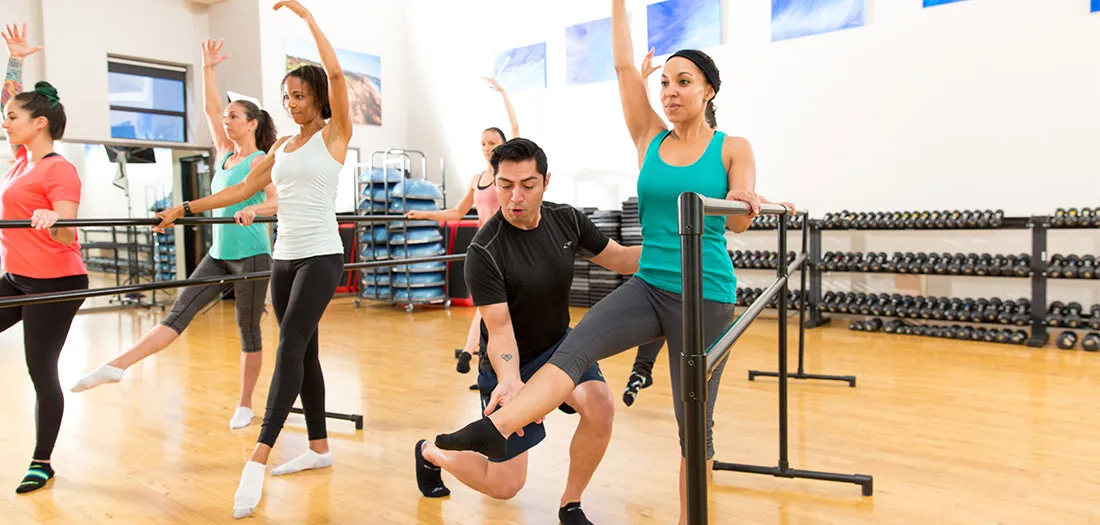Exercise and Self-Esteem: Building Confidence Through Physical Activity
In today’s fast-paced world, maintaining a healthy lifestyle is essential for overall well-being. Among the various components of a healthy lifestyle, exercise plays a crucial role not only in physical health but also in mental well-being. One significant aspect of mental health is self-esteem. This article explores the connection between exercise and self-esteem, highlighting how engaging in regular physical activity can boost confidence and improve one’s sense of self-worth.
Understanding Self-Esteem
What Is Self-Esteem?
Self-esteem refers to the overall opinion one has about themselves. It encompasses beliefs about one’s worth and value, as well as the feelings associated with those beliefs. High self-esteem often leads to a positive self-image, self-acceptance, and resilience in the face of challenges, while low self-esteem can result in negative self-perceptions and increased vulnerability to mental health issues.
Factors Influencing Self-Esteem
Self-esteem is shaped by various factors, including:
- Life Experiences: Positive and negative experiences can significantly impact how individuals perceive themselves.
- Social Interactions: Relationships with family, friends, and peers play a vital role in shaping self-esteem.
- Cultural Influences: Societal norms and cultural expectations can affect individuals’ self-worth.
- Personal Achievements: Accomplishing personal goals, no matter how small, can enhance self-esteem.
Understanding these factors helps in recognizing how exercise can serve as a powerful tool for improving self-esteem.
The Role of Exercise in Mental Health
Benefits of Exercise
Engaging in regular exercise offers numerous benefits for mental health, including:
- Release of Endorphins: Physical activity stimulates the release of endorphins, often referred to as “feel-good” hormones, which can lead to improved mood and reduced feelings of stress and anxiety.
- Improved Sleep Quality: Regular exercise can enhance sleep quality, which is crucial for mental health and overall well-being. A good night’s sleep contributes to better mood regulation and cognitive functioning.
- Reduced Anxiety and Depression: Exercise has been shown to reduce symptoms of anxiety and depression. It provides a constructive outlet for stress and can alleviate feelings of sadness.
- Increased Energy Levels: Engaging in physical activity can boost energy levels, making individuals feel more alert and active throughout the day.
- Enhanced Cognitive Function: Regular exercise is associated with improved cognitive function, including better memory, concentration, and decision-making skills.
Exercise as a Confidence Booster
One of the most profound effects of exercise is its ability to enhance self-esteem and confidence. Here’s how:
- Achieving Fitness Goals: Setting and achieving fitness goals, such as running a certain distance or lifting a specific weight, can foster a sense of accomplishment. Each achievement, no matter how small, reinforces the belief that one is capable and competent.
- Body Image Improvement: Regular exercise can lead to physical changes that improve body image. Feeling stronger and more fit can positively impact how individuals perceive their bodies, leading to increased self-acceptance.
- Social Connections: Many forms of exercise, such as group classes or team sports, provide opportunities for social interaction. Building connections with others through physical activity can enhance feelings of belonging and support, contributing to improved self-esteem.
- Development of New Skills: Trying new forms of exercise can help individuals develop new skills and abilities. Mastering a new technique or movement can boost confidence and encourage a growth mindset.
- Stress Relief: Exercise serves as an effective stress-relief mechanism. By reducing stress and promoting relaxation, individuals are more likely to feel positive about themselves and their lives.
Different Types of Exercise and Their Impact on Self-Esteem
Aerobic Exercise
Aerobic exercises, such as running, cycling, and swimming, are known for their cardiovascular benefits. These activities increase heart rate and improve overall fitness, but they also significantly impact mental well-being.
- Increased Endurance: As individuals build endurance through aerobic exercises, they often experience a boost in self-confidence. Completing longer workouts or achieving personal bests reinforces the belief in one’s capabilities.
- Group Activities: Many people engage in aerobic exercises in group settings, such as fitness classes or running clubs. The social aspect of these activities fosters a sense of community and support, enhancing self-esteem.
Strength Training
Strength training involves using resistance to build muscle and strength. It can take various forms, including weightlifting, bodyweight exercises, and resistance band workouts.

- Empowerment Through Strength: As individuals gain strength and muscle tone, they often feel more empowered and confident in their bodies. This physical transformation can translate into a more positive self-image.
- Focus on Personal Progress: Strength training allows individuals to focus on personal progress, such as lifting heavier weights or performing more repetitions. Celebrating these milestones can significantly enhance self-esteem.
Mind-Body Exercises
Mind-body exercises, such as yoga and Pilates, emphasize the connection between mental and physical well-being.
- Mindfulness and Self-Acceptance: These exercises often incorporate mindfulness practices that promote self-acceptance and self-compassion. Participants learn to appreciate their bodies for what they can do rather than how they look, leading to improved self-esteem.
- Stress Reduction: The calming nature of mind-body exercises can reduce stress and anxiety, creating a more positive mental state and enhancing overall self-esteem.
How to Incorporate Exercise Into Your Routine
Setting Realistic Goals
To reap the benefits of exercise on self-esteem, it’s important to set realistic and achievable goals. Consider the following tips:
- Start Small: If new to exercise, begin with short workouts or simple activities. Gradually increase intensity and duration as confidence builds.
- Be Specific: Set specific goals, such as walking for 20 minutes three times a week or completing a certain number of push-ups. Specific goals provide a clear target to work toward.
- Track Progress: Keep a record of workouts and achievements. Tracking progress helps visualize growth and reinforces a sense of accomplishment.

Finding Activities You Enjoy
Choosing enjoyable activities increases the likelihood of sticking to an exercise routine. Consider the following:
- Explore Different Options: Experiment with various types of exercise, such as dance, hiking, swimming, or team sports, to find what resonates.
- Join a Class or Group: Participating in group classes or activities can add a social element, making exercise more enjoyable and fostering connections with others.
- Listen to Your Body: Pay attention to how different activities make you feel. Choose those that bring joy and fulfillment, as this will positively impact self-esteem.
Creating a Supportive Environment
A supportive environment can significantly enhance motivation and self-esteem:
- Workout with Friends: Exercising with friends or family can make workouts more enjoyable and provide encouragement.
- Seek Professional Guidance: If unsure where to start, consider working with a personal trainer or fitness coach. They can help tailor a program to individual needs and provide motivation.
- Celebrate Achievements: Recognize and celebrate milestones, no matter how small. Acknowledging progress fosters a positive mindset and reinforces self-worth.
Overcoming Barriers to Exercise
Despite the numerous benefits of exercise on self-esteem, many individuals face barriers that prevent them from engaging in physical activity. Here are some common barriers and strategies to overcome them:
Time Constraints
Many people feel they lack time to exercise due to busy schedules. To overcome this barrier:
- Prioritize Exercise: Treat exercise as an essential appointment. Schedule workout time just like any other important commitment.
- Incorporate Short Workouts: Even short bursts of physical activity can be beneficial. Consider high-intensity interval training (HIIT) or quick bodyweight workouts.
- Combine Activities: Look for opportunities to combine exercise with daily activities, such as walking or biking to work or taking the stairs instead of the elevator.
Lack of Motivation
Staying motivated can be challenging, especially when starting a new routine. To combat this:
- Set Clear Goals: Establish clear and meaningful goals that inspire motivation. Having a purpose can drive individuals to stay committed.
- Find a Workout Buddy: Exercising with a friend can provide accountability and make workouts more enjoyable.
- Mix It Up: To prevent boredom, vary workouts by trying new activities, classes, or outdoor adventures.
Fear of Judgment
Some individuals may fear being judged at the gym or during group activities. To overcome this fear:
- Focus on Personal Progress: Remind yourself that everyone is on their fitness journey. Concentrate on personal goals rather than comparing yourself to others.
- Choose Comfortable Settings: If traditional gyms feel intimidating, consider home workouts or outdoor activities where individuals feel more at ease.
- Embrace Supportive Communities: Join supportive exercise communities, whether online or in-person, where individuals can encourage one another without judgment.
The Long-Term Impact of Exercise on Self-Esteem
Engaging in regular exercise can lead to lasting improvements in self-esteem over time. As individuals become more physically active, they often experience:
- Sustained Confidence: The confidence gained through achieving fitness goals can extend beyond physical activity, positively influencing other areas of life, such as work and relationships.
- Resilience to Challenges: Regular exercise promotes resilience, helping individuals cope with life’s challenges more effectively and reducing the impact of stress on self-esteem.
- Positive Lifestyle Changes: Individuals who prioritize exercise often adopt other healthy habits, such as balanced nutrition and adequate sleep, further enhancing overall well-being and self-esteem.
Conclusion
In conclusion, the relationship between exercise and self-esteem is profound. Engaging in regular physical activity not only
improves physical health but also significantly boosts confidence and self-worth. By understanding the benefits of exercise, incorporating enjoyable activities into daily routines, and overcoming barriers, individuals can harness the power of exercise to foster a positive self-image and enhance overall mental well-being. Embracing a healthier lifestyle through exercise can lead to lasting changes that positively impact self-esteem and enrich life. Start your journey today, and experience the transformative effects of exercise on self-esteem!

